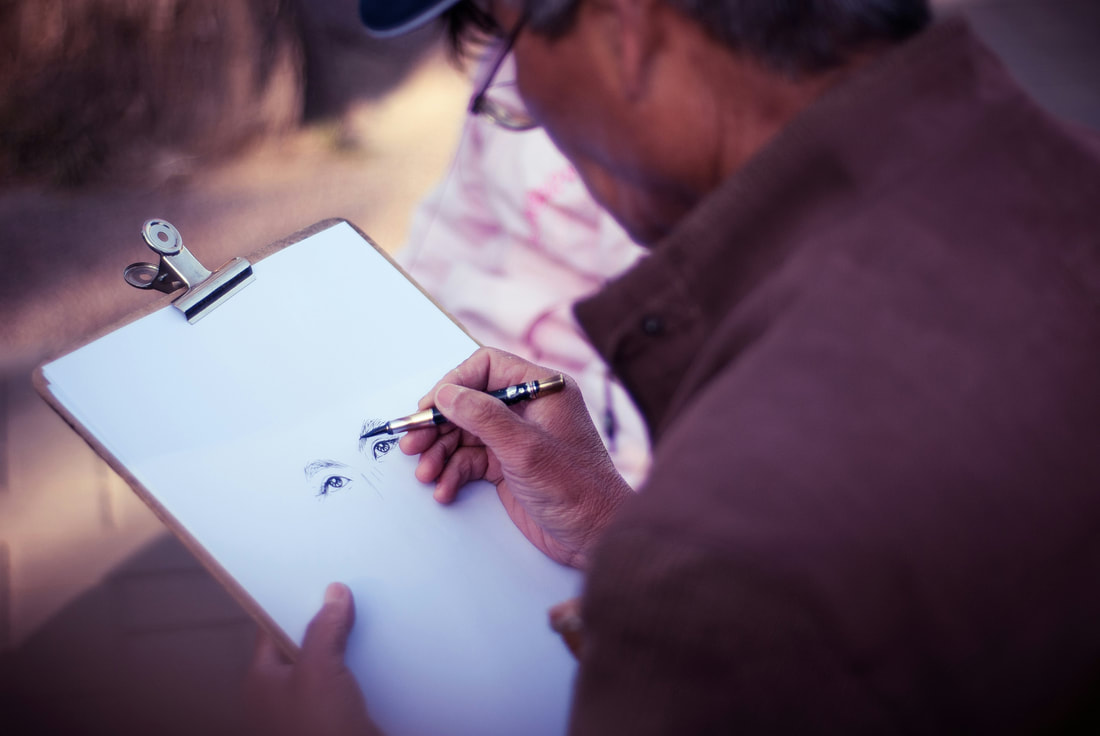|
Image: JJ Ying via Unsplash
Artists are often viewed as mysterious beings, seemingly possessing magical knowledge that’s beyond the grasp of mere mortals. They create something out of nothing, captivating audiences with their chosen medium, whether it be visual art, music, theater, film, or writing. Their creations serve as mirrors to the world, reflecting back profound truths or offering unique perspectives. Their work can evoke a range of emotions: enthralled, amused, frightened, or deeply moved. Like I said, it’s almost as if they wield a kind of magic. But here's the secret: it's not magic at all. In reality, artists have honed a few key skills to a high level of proficiency. And guess what? You can develop these skills too, tailored to your own medium, whether it's problem-solving, project management, research, communication, analytics, or anything else you do. So, what exactly do artists excel at, and how can you cultivate these abilities in your own life and work? Here’s how: 1. Observe + Notice In art school, you're taught the art of observation. You learn to see shapes, colors, textures, and tensions that others overlook. This keen observation is essential for artists, enabling them to capture the essence of what they perceive and express it through their chosen medium. In life and work, the ability to observe and notice allows you to see what others miss, to discern the subtleties of a situation, and to gain a deeper understanding of reality. 2. Reserve Judgment An artist must learn to set aside judgment while honing their observational skills. When sketching from life, for example, you can't afford to label something as unattractive or imperfect. You must see things as they are, without bias, to capture their true essence. In work and life, reserving judgment enables you to approach challenges with objectivity, make decisions based on facts rather than preconceptions, and build meaningful relationships on understanding rather than judgment. 3. Challenge Assumptions Building on the foundation of observation and reserving judgment, artists excel at challenging assumptions. Did you know that, in drawing a portrait, the eyes typically fall halfway between the chin and the crown of the head? Yes, that far down. Your perception of reality isn't always accurate. By challenging your assumptions, you open yourself up to new perspectives and insights, essential for innovation, collaboration, and problem-solving in both work and life. 4. Ask New Questions Artists are masters of inquiry, constantly asking, "What if?" and "Why not?" These simple yet powerful questions spark a cascade of new ideas and possibilities. Just like feeding different prompts into ChatGPT yields different responses, changing your approach can lead to fresh insights and solutions. Cultivating the ability to ask probing questions empowers you to explore new avenues and uncover innovative solutions to complex problems. 5. Lead with Curiosity Curiosity is the lifeblood of artistic expression. Artists approach the world with a childlike wonder, constantly questioning, exploring, and seeking to understand. Cultivating curiosity allows you to delve deeper into subjects, expand your knowledge, and generate novel ideas. Embrace your innate curiosity, and watch as it leads you toward new discoveries and insights in both your personal and professional life. 6. Practice Using Tools + Techniques Just as a painter wields a brush and canvas, artists master a variety of tools and techniques to bring their visions to life. Similarly, in work and life, knowing which tools and techniques to apply can make all the difference. Whether it's choosing the right software for a project or employing effective communication strategies, skillful application of tools and techniques enhances your effectiveness and efficiency. 7. Develop Mastery Repetitive practice breeds mastery. Watch a virtuoso play the piano. Through countless hours of dedication, artists develop an intuitive understanding of their craft, allowing them to transcend the technicalities and focus on their creative vision. Likewise, in work and life, mastery of your domain empowers you to tackle challenges with confidence, innovate with ease, and achieve extraordinary results. So, what sets artists apart isn't some elusive magic; it's a set of skills that anyone can develop with dedication and practice. As someone who was trained as an artist and now applies these skills as a coach, advisor, and thought partner, I've seen firsthand the transformative power of embracing these principles.
0 Comments
Leave a Reply. |
AuthorVeronica Scarpellino is a Professional Certified Coach (PCC) through the ICF and Board Certified Coach (BCC), stands at the forefront of creativity and career evolution. With over 20 years of immersive experience and formal coaching, she specializes in guiding professionals through transitions, emphasizing the transformative potential of creative thinking. Archives
May 2024
Categories
All
|

484.474.0285
© 2021-2024 Goldfinch Leadership LLC
Philadelphia, Pennsylvania
Goldfinch Leadership logo designed by MF Studio.


 RSS Feed
RSS Feed